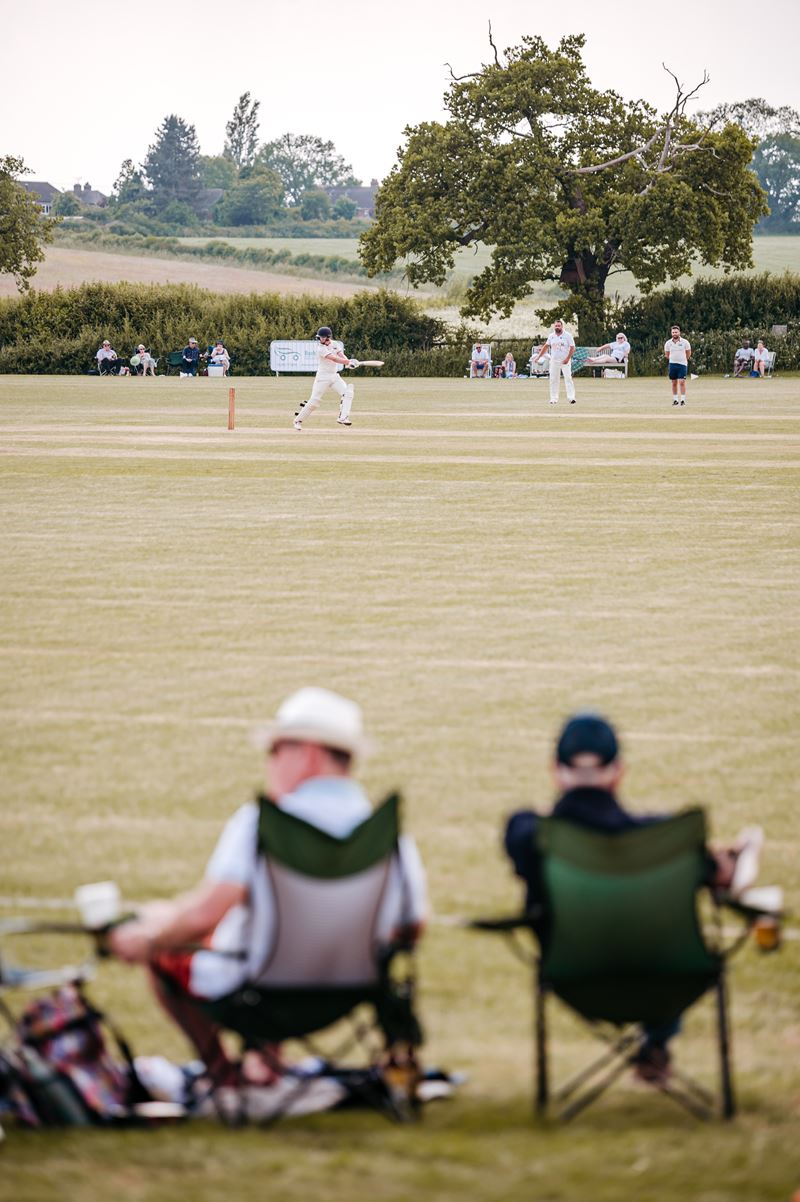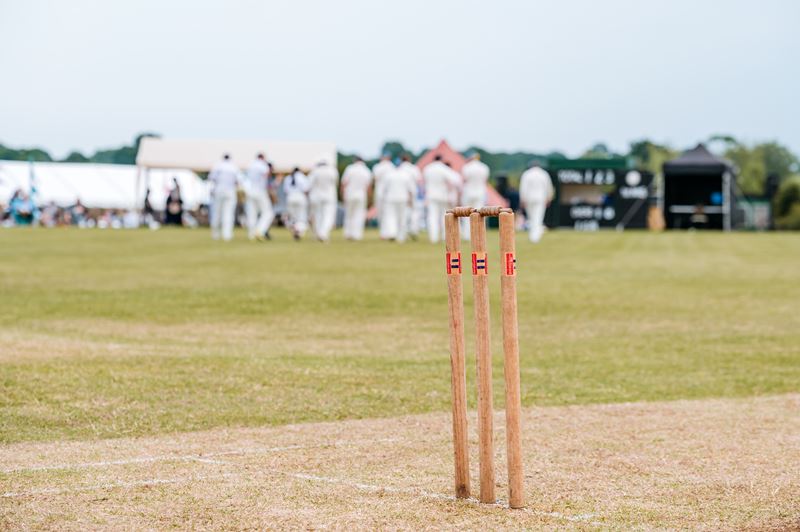
Recognise → Report → Respond → Record → Review
Safeguarding can be complex. The rights of an individual to determine something themselves and to be involved in decisions about their lives needs to be balanced against risks, such as the need to keep others safe.
Advice can be sought from the Safeguarding Team. The Safeguarding Team has undertaken training and can seek advice from external organisations where required. However you should feel comfortable and confident in speaking to your line manager and or any manager within the Lord’s Taverners. Safeguarding is everyone responsibility.
What is Safeguarding?
Everybody has the right to be safe no matter who they are or what their circumstances.
"Creating a safe and welcoming environment, where everyone is respected and valued, is at the heart of safeguarding. It’s about making sure your organisation is run in a way that actively prevents harm, harassment, bullying, abuse and neglect. It’s also about being ready to respond safely if there is a problem. Everyone in the organisation has a role to play in safeguarding. It should become part of our day to day activities.
Every organisation that delivers charitable activities has a duty to safeguard volunteers, Staff members, participants and donors.’’ NVCO
Safeguarding is everyone’s responsibility - you are not alone help and support is available.

The Basics
Reports of any safeguarding issues or concerns from within our programmes should be to the relevant County Cricket Board Safeguarding Team and the Lords Taverners DSL. Reports in regard to the Lord's Taverners (members/volunteers and staff) only require reporting to the DSL.
A flowchart of the reporting process is shown in Appendix 1.
1. Recognising Safeguarding Concerns
Recognising means being aware.
Everyone who works for the Lord’s Taverners and those who volunteer in identified positions should complete a recognised course alongside increasing their own safeguarding knowledge. This will help raise awareness of how to recognise safeguarding concerns.
Stay aware of signs which may indicate safeguarding concern. These maybe changes in appearance, communication, behaviour and/or mood. For example but not limited to, please see Appendix 2 for categories and indicators of abuse.

2. Responding to Safeguarding Concerns
Responding means how we manage safeguarding disclosures.
a) Receiving a disclosure
A disclosure is when someone tells a person about poor practice or abuse that has happened to them and/or others. If this happens:
- Find a quiet place to talk ensuring you are visible to others;
- Be patient, listen carefully and stay calm;
- Allow enough time for the person to communicate fully;
- Be clear with them that they have a right to be safe;
- Ask the individual what they would like to happen and reassure them that their views and wishes will be taken into account; if there is a risk to other people a formal reporting process must be followed. Risk to others always takes precedence to confidentiality.
- Explain the information must be passed on to the Lord's Taverners DSL or Safeguarding Team if the disclosure involves the DSL themselves.
But please avoid:
- Asking lots of questions;
- Beginning investigations or touching any evidence;
- Deleting any messages or pictures;
- Putting anyone at risk by the actions you take.
b) Feeling concerned?
If you are worried about an individual don’t keep concerns to yourself. Depending on your relationship with the person and how serious your concerns are, see if the person would like to talk to the Lord's Taverners DSL. If employed by Lord's Taverners our Employee Assistance Programme is in place to support your wellbeing.
It is best practice, when safe to do so, to discuss any safeguarding concerns with the individual to establish their views and the expression ‘nothing about me without me’ is a useful one to remember. This means no decision about someone should be made with out consultation. However, you can also seek advice yourself from the Lord's Taverners DSL if you are unsure what to do.
c) Historic abuse
If historic abuse is disclosed the individual should be encouraged to go to the police. If you need advice or support after receiving such a disclosure, contact the Lord's Taverners Safeguarding Team.

3. Reporting Safeguarding Concerns
Reporting means the process of which to follow after a disclosure.
a) Initial reports will normally be to Safeguarding team unless they are suspected of being involved in the concern
Even if the individual does not want action taken, the concern must still be shared as no volunteer/staff or member should hold back information that might mean an individual is at risk. Holding back information could mean that poor practice or abuse continues or gets worse. Keeping information private puts unfair pressure on staff/members/volunteers and encourages a culture of secrets.
There are various actions which are available to the Lord’s Taverners, these include education, mentoring and supervision where appropriate.
b) Reporting safeguarding concerns in an emergency
In an emergency contact the police or call an ambulance.
An emergency includes situations where:
- Other adults and/or children could be at risk of immediate harm;
- A crime may be committed;
- The individual is at risk but is being coerced not to disclose;
- Health and/or wellbeing may be adversely affected by ongoing harm or abuse;
- The person posing the risk has care and support needs and may also be at risk.
The safeguarding team, consisting of the DSL and Deputy DSL, can be contacted at safeguarding@lordstaverners.org.

5. Managing and Reviewing Concerns
a) Poor practice
Following reports of poor practice (where good policy and practice isn’t followed), the Lord's Taverners DSL should explore exactly what happened. This will include listening to all those involved to get a clear picture of what happened, when, where, why and how, and then identifying the most appropriate way to address what happened and prevent reoccurrence.
These interventions can help address poor practice and prevent reoccurrence in the future:
- Encouraging an individual to undertake training courses;
- Providing additional support to volunteers/member/staff;
- Reviewing the process – for example, are there enough helpers, have they had an induction to their role.
b) Abuse
If abuse has occurred, the Lord's Taverners Safeguarding Team will be involved and may take regulatory action. The Lord's Taverners Safeguarding team will review what happened and prevent reoccurrence.

Whistleblowing
Everyone should also be aware of whistleblowing.
Whistleblowing is an important and accepted practice. No-one should feel guilty about using it. It allows anyone to report if they feel a safeguarding concern hasn’t been properly managed - or conduct is not appropriate. You can read more about this in the Lord's Taverners Whistleblowing Policy.
Speak Up
- We must all stand up for people who can’t speak up for themselves. Or those who don’t want to or choose not to.
- Speaking up if you’re worried someone is harming or abusing someone else or themselves. It is always the right thing to do. It’s not the same as ‘snitching’ or ‘being a grass’.
- People are often worried that if they report someone for doing wrong, they’ll hurt that person. But doing nothing could hurt others even more.
- There are many reasons why people might feel uncomfortable or be scared to report suspicions of abuse. That’s OK. It’s worth fighting those fears so you can help someone.
- If you speak up, your organisation should protect you and make sure you’re not harmed or criticised for it.